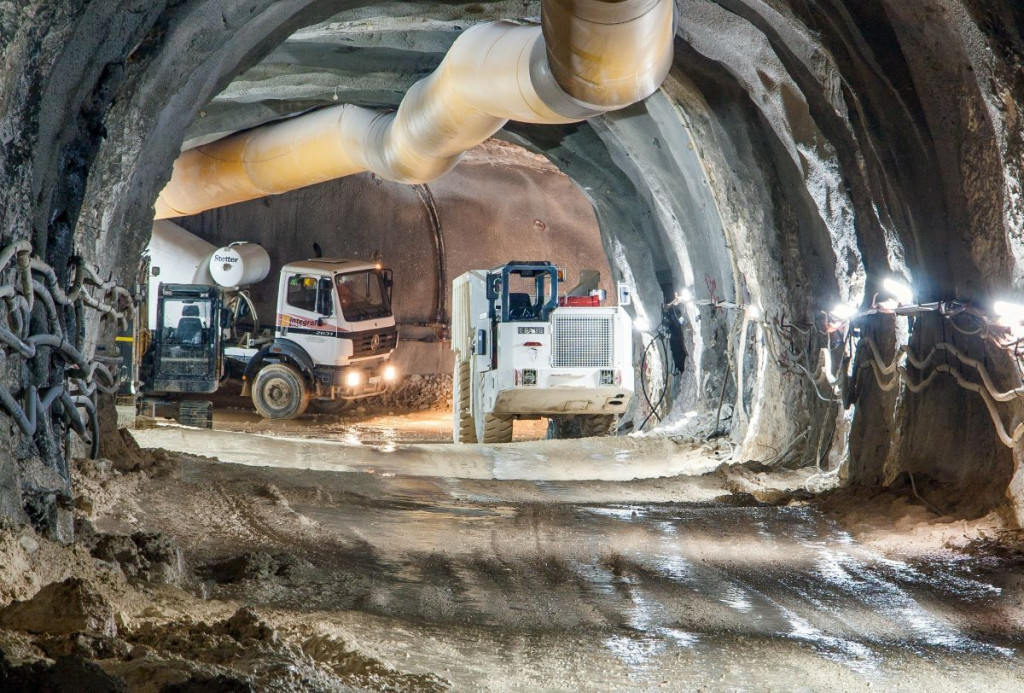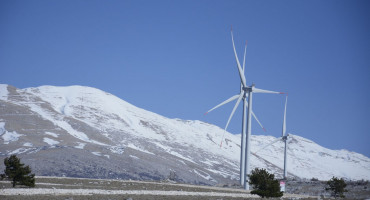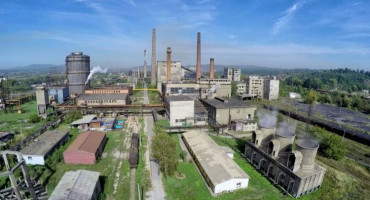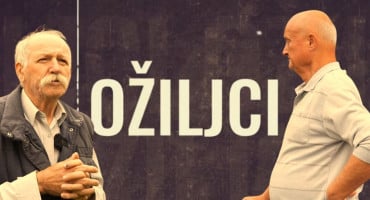Bosnian-Chinese Consortiums are after tenders of Elektroprivreda BiH
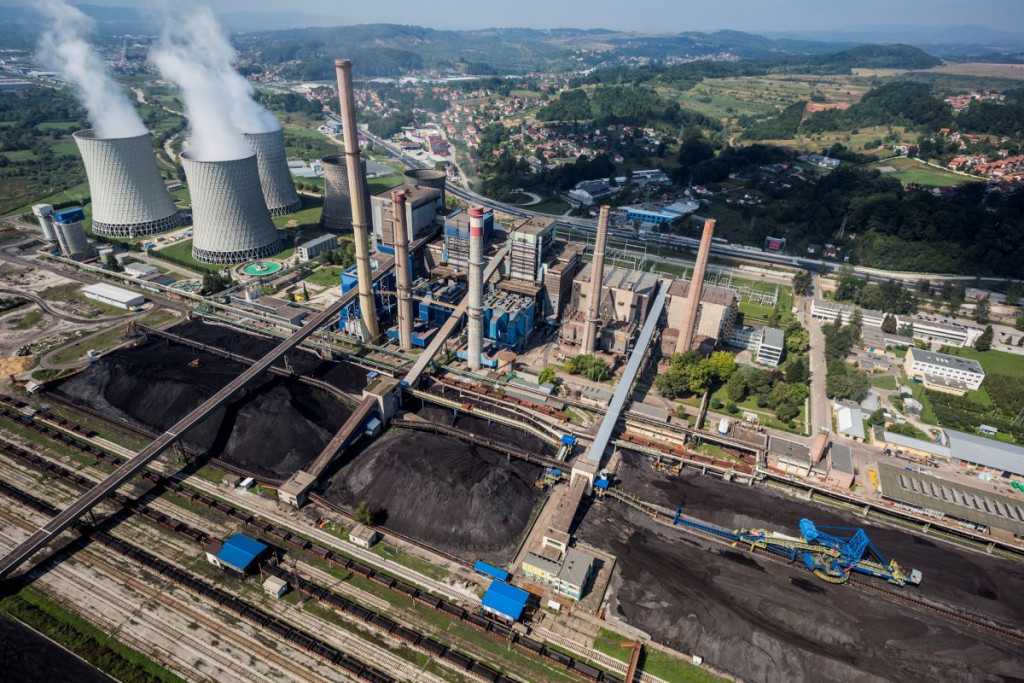
Thanks to political and interest connections, the Chinese state company DEC has positioned itself as an indispensable player in the implementation of multi-million projects with Elektroprivreda BiH, which is currently operating at a loss of 331 million.
The Chinese company Dongfang Electric International Corporation (DEC) has received multi-million tenders from Elektroprivreda of Bosnia and Herzegovina. Documentation on public procurement for Block 6 of the Tuzla Thermal Power Plant, worth BAM 63 million, has been handed over to the Federation Police Administration due to suspicions that the Chinese company was favored.
It is noteworthy mentioning that in the prequalification phase, the flue gas desulfurization job at Block 6 of the Tuzla Thermal Power Plant, worth BAM 63 million excluding VAT, was awarded to the Chinese company Dongfang Electric International Corporation and Zenica based company ITC, which participated in the tender together. According to the portal Fokus.ba, a criminal complaint was filed with the Federation Police Administration (FUP) against several individuals in Elektroprivreda BiH, including director Sanel Buljubašić, due to indications of favoritism towards these bidders.
The criminal complaint was filed by the founder and director of Tehnopetrol Tuzla, Elvir Ferizović and Nedim Mujkić. Additionally, the company Deling from Tuzla is also a complainant.
The Chinese DEC never participates in the BiH market alone, but always with a domestic company. According to Amil Dučić from the Fokus portal, the company Dongfang Electric International Corporation had several domestic partners, with the key one being the company ITC Zenica.
It is with this company that they entered the competition for jobs worth hundreds of millions of BAM, such as flue gas desulfurization at Block 6 of the Tuzla Thermal Power Plant and the construction of a flue gas desulfurization plant at TPP Kakanj. Elektroprivreda BiH had on May 24 already awarded them the job of replacing the steam pipe on the boiler of Block 4 at the TPP Tuzla. They have again partnered with ITC Zenica, which specializes in the sale of agricultural equipment.
“The first two tenders related to Block 6 of the Tuzla Thermal Power Plant and the Kakanj Thermal Power Plant have not yet been completed due to appeals. However, according to the documentation handed over to the Federation Police Administration, it is evident that favoritism towards the mentioned Chinese-Zenica consortium is at play”, said Dučić, adding that the Chinese companies, including this one, have found fertile ground in some of our domestic companies due to needs related to administration, licenses, and other matters.
“The problem is even bigger because once the projects are to be implemented they usually hire companies from the surrounding area, primarily from Serbia, as subcontractors. In this regard, domestic companies rarely have any opportunities”, concluded Dučić.
Extensive documentation has been handed over to the Federation Police Administration, and, as Dučić states, there are suspicions of corrupt practices.
The available documentation indeed points to illegalities and corruption, as the mentioned Chinese company is being given leniency, which according to the Public Procurement Law should not be done.
“They are accepting financial reports that are neither originals nor copies, but translations, while competitors are disqualified for using certain English words in their offers that are legitimate in business communication. Meanwhile, Chinese companies submit entire documentation in English and it gets accepted”, explained Dučić.
Persistent in a Chinese manner
The tenders for flue gas desulfurization at Block 6 of the Tuzla Thermal Power Plant is not the first tender of the Bosnian-Chinese consortium with Elektroprivreda BiH. According to data from the Public Procurement Portal, the procurement of boiler revitalization services for Block 6 at the Tuzla Thermal Power Plant Branch began in 2019, with three procurement procedures conducted, two of which were unsuccessful.
The procedures were marked by annulments, changes to tender documents, and cancellations. Eventually, the process concluded with the contract being awarded to a consortium led by ITC ZENICA D.O.O., with members including DONGFANG ELECTRIC INTERNATIONAL CORPORATION and DONGFANG BOILER GROUP CO., LTD. Interestingly, the most transparent procurement procedure was conducted in this case – open procedure.
Three offers were submitted, with two evaluated as acceptable. The most favorable offer was only BAM 65.07 lower than the estimated value of BAM 25.440.000, while the second-ranked offer was nearly BAM 5 million above the estimated value. According to data from the Public Procurement Portal, there were no appeals filed during the procedure. The then management of Elektroprivreda BiH, led by Admir Andelija, signed the contract with the Bosnian-Chinese consortium.
The difference between the estimated value (BAM 25.440.000), the offer from the first-ranked consortium ITC Zenica & CO (BAM 25,439,934.93), and the second-ranked consortium Termoelektro d.o.o. Brčko & CO (BAM 30.289.240), highlights two potential risks, as explained by Slobodan Golubović, editor of the Pratimotendera.ba portal.
“The first risk is that the first-ranked consortium deliberately bid low, anticipating that any potential deficits could be compensated through additional and unforeseen work, a common practice in the procurement of works. Another risk is the possibility that the bidders colluded beforehand to make the bidding process merely a formality”, said Golubović.
Chinese companies operating in Bosnia and Herzegovina often come “accompanied” by a smaller Chinese company or indirectly establish a new smaller company and cooperate with it or contract with an existing company from BiH.
While none of these practices are problematic in themselves, journalist with the Bosnian office of Balkan Investigative Reporting Network (BIRN BiH), Irvin Pekmez, states that their current operations in BiH indicate non-compliance with domestic regulations.
“The practice of Chinese companies in Bosnia and Herzegovina, often facilitated by local authorities, includes withholding basic business information, such as financial details. Any form of cooperation whose specifics are not made public further adds to the opacity for citizens, whose tax money finances these projects or will be used to repay loans. Chinese companies themselves are not inherently problematic, but they have thrived within structures that lack accountability to their citizens. Consequently, Chinese companies feel little obligation to behave differently”, said Pekmez.
He argues that the secrecy surrounding the operations of Chinese companies, including fundamental aspects like contracts, raises questions, suggesting that such opacity can only persist with the tacit consent of local authorities.
“The support and mutual understanding between authorities and Chinese partners are central to the issue at hand – Chinese companies also operate in the European Union, but that system forces them to adhere to local standards and rules. The BiH system allows them minimal responsibility and transparency, which is extremely dangerous as it opens avenues for fraud, including falsifying tender documents, concealing project costs, and irregularities in project execution. All three features have been observed in the histories of certain Chinese companies”, said Pekmez.
There is a secret connection
It is worth mentioning that last year in January the portal Tačno.net published information that the consortium ITC Zenica, Dongfang Electric, and Dongfang Boiler was awarded the tender for the reconstruction of Block 6 of the Tuzla Thermal Power Plant.
This crucial task, involving the overhaul of EP BiH’s most powerful unit, was delayed for several months. The initial issues surfaced with the definition of the bank guarantee and clearly highlights EP BiH management’s lack of urgency in realizing this project.
According to EP BiH’s official documentation over 100 out of the total 390 days allotted for project completion were consumed solely by the process of harmonizing the bank guarantee.
Given that the Bosnian-Chinese consortium delayed the implementation deadlines for this project by four months, it has had financial repercussions on the balance sheets of Elektroprivreda BiH.
After the information was released about the accumulated business loss of BAM 331 million in 2023 the new management of this state-owned company, led by EP BiH General Director Sanel Buljubašić, has attributed this result to the delay in the reconstruction of the boiler of Block 6 at the Tuzla Thermal Power Plant.
The involvement of the Chinese state-owned company Dongfang Electric International Corporation (DEC) in Bosnia and Herzegovina began with their participation in the construction of the private thermal power plant Stanari, owned by EFT and specifically Vuk Hamović.
The decisions of the Government of the RS stipulate that the minimum concession fee for the extended period of the concession is determined at BAM 0.0033 per kilowatt-hour of electricity produced at the official billing point of electricity delivery.
The construction of the Stanari thermal power plant, which today generates 13% of Bosnia and Herzegovina’s electricity, was financed with loans from the Chinese Development Bank, with a total investment at that time of BAM 560 million.
On both sides of the Drina River
The successful realization of the Stanari thermal power plant construction, coupled with increasingly frequent contacts between the political leadership of Republika Srpska, especially Milorad Dodik, and leaders of the Chinese company DEC, has positioned DEC as a strategic partner of this BiH entity for future energy projects.
Dongfang Electric International Corporation, like numerous other Chinese companies operating in BiH, is owned by China. It is thus a conglomerate of interconnected companies, all state-owned, involved in road construction, energy facility construction, and more. It represents a vast potential, resources, and substantial human and financial capital. Realistically, they rarely encounter counterparts worldwide that match their market strength.
“However, the other side of this story is the absolute lack of transparency, evident in labeling business contracts as “secret”. Honestly speaking, this unfortunately aligns with the preferences of our authorities and, consequently, the management of public companies they oversee. Taking all this into account, it’s not surprising that they secure lucrative contracts in Bosnia and Herzegovina, as well as in the region”, said Amil Dučić.
The success of Chinese companies in Republika Srpska is directly linked to the close relations between Aleksandar Vučić and Milorad Dodik’s authorities. Recognizing China as a crucial partner, irrespective of the long-term consequences for citizens, is a shared political strategy across both sides of the Drina River.
“Chinese business activities in Bosnia and Herzegovina have recently taken on a new dimension – diverting funds intended for BiH citizens through EU funds. With the RS government facing increasing sanctions and growing Euroscepticism, there is a rising momentum towards selecting Chinese partners”, stated Irvin Pekmez from BIRN BiH.
For Dučić, the motive Milorad Dodik, president of the smaller entity within Bosnia and Herzegovina, favors Chinese companies is clear.
“Dodikis primary motive is securing loans to prevent the RS from bankruptcy. Concurrently, RS has engaged Chinese contractors in nearly every section of the ongoing highway construction, spanning from Prijedor to Banja Luka and from Vukosavlje to Bijeljina. These are substantial projects. In addition, both Serbia and RS aim to forge close political ties with China, as to defy the United States of America. Thus, we are witnessing a series of cause-and-effect relationships that explain these connections,” explained Dučić.
In addition to Stanari, DEC also engaged in a project in Banovići that was never realized, and they secured a project for constructing a solar power plant in Bileća.
“Donfang in Bosnia and Herzegovina has completed two projects since 2015, which does not constitute a significant portfolio. However, it should be noted that every Chinese company participating in tenders or receiving direct contracts without competition represents a state-owned entity, implying that every Chinese company, in fact, has the same owner,” explained Pekmez. He further added that over the last decade, authorities in the Republika Srpska, and to a lesser extent in the Federation of Bosnia and Herzegovina, have displayed a particular sensitivity towards Chinese company offers. This often leads to increased competition difficulty for other companies, contractors, and financiers.
All of our projects
According to Just Finance International, which created the Map of Chinese Investments in the Balkans, Chinese companies have undertaken nine projects in BiH to date, each met with resistance and protests from citizens.
In 2023, the Center for the Environment from Banja Luka filed a lawsuit with the District Court in Trebinje against Elektroprivreda RS. The lawsuit concerned the secrecy of the contract for the construction of the “Dabar” Hydropower Plant with Chinese partners and the concealment of the loan agreement.
In the same year, local residents protested against the construction of three mini-hydropower plants on the Bistrica River, contracted to the Chinese National Aero-Technology Corporation for International Engineering (AVIC-ENG). Elektroprivreda RS allocated 102 million Euro for this project. The project consists of three small hydroelectric power plants with a total installed capacity of 39 megawatts and an annual production of 152 gigawatt hours of electricity. The construction contract with the Chinese corporation AVIC was signed in 2019 by the former Prime Minister of RS, Radovan Višković in Beijing. Although the official start of construction on the Bistrica River was announced at the end of 2021, the project has faced numerous challenges.
Problems also surfaced during the construction of the Banja Luka – Prijedor highway, originally planned to pass through Kozarac and Hrnići, which would have required demolishing a total of 97 houses. Local residents opposed this plan, prompting the Government of RS to purchase and subsequently sell the land to the Chinese company Shandong International (SDHS CSI BiH), responsible for constructing the highway from Banja Luka to Prijedor.
“Primarily due to the lack of transparency concerning those companies, coupled with a fertile ground for corrupt activities in Bosnia and Herzegovina, Serbia, Montenegro, and some other countries”, explained Dučić citizens’ protests.
Dongfang Electric International Corporation (DEC), namely their office in Stanari, did not respond to our inquiries and calls.
